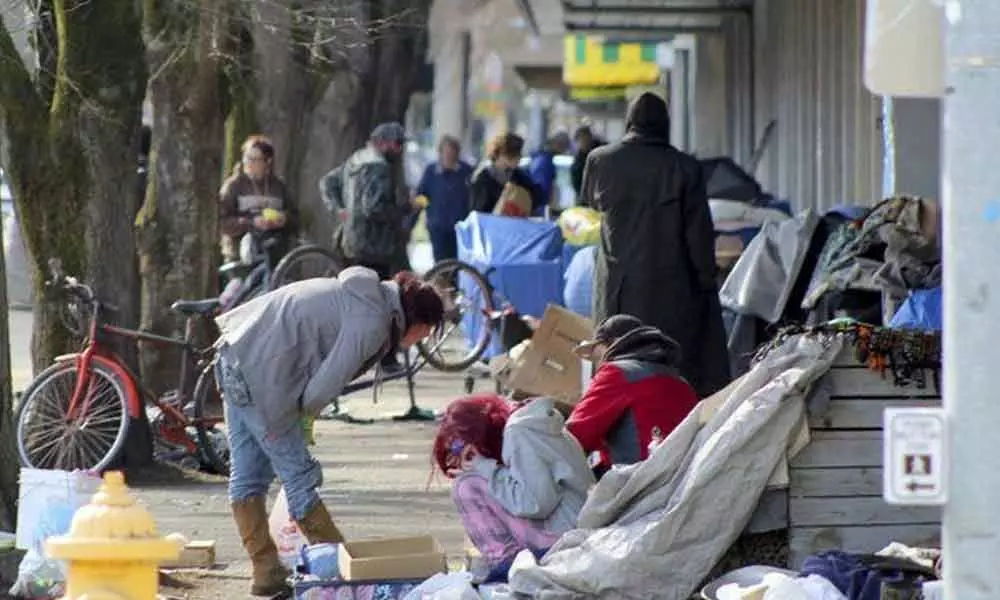Live
- Lack of planning, weak narrative behind MVA debacle
- UTF dist unit golden jubilee celebrations begin
- TSIC launches ‘Innovations 101’ coffee table book
- Drone technology for crime control
- Do you support caste census? Which one will you prefer caste census or skill census?
- DSS to launch gender campaign today
- MJCET holds first-ever 24-hr datathon
- TDP, JSP, YSRCP urged to oppose Wakf Bill
- T-SAT to launch new programme on ‘General Studies’
- Cops silence deafening noise of 100 bikes
Just In
Why corona cases are more common among lower-income people in US


Researchers from Boston University have claimed that underlying conditions that increase the risk of severe illness or death from coronavirus (COVID-19) are much more common among the people of colour, Native American, and lower-income people in the US.
New York: Researchers from Boston University have claimed that underlying conditions that increase the risk of severe illness or death from coronavirus (COVID-19) are much more common among the people of colour, Native American, and lower-income people in the US.
The COVID-19 does not discriminate, but discrimination and inequality have shaped the risk of severe illness and death, according to the research team from Boston University School of Public Health (BUSPH).
The study, published in the American Journal of Preventive Medicine, found that black, Native American and lower-income people are much more likely to have one or more of the risk factors for severe or deadly COVID-19 illness identified by the Centers for Disease Control and Prevention (CDC), such as asthma, diabetes, or being pregnant or over 65 years old.
"Decades of structural inequities in education, employment, housing, stress, and other factors have shaped disparities in the burden of chronic diseases by race, ethnicity, and income," said study co-author Dr Julia Raifman from BUSPH.
"Now, these structural inequities have created a context in which people who are black, American Indian, or lower-income face additional risk of death if they contract COVID-19," she added.
For the findings, the researchers used 2018 data on over 330,000 people from the nationally-representative 'Behavioural Risk Factor Surveillance System', and looked at the prevalence of the COVID-19 risk factors.
They estimated that 43 per cent of adults in the US have at least one risk factor, and 18 per cent have two or more.
Among those under 65 years old, 33 per cent of black and 42 per cent of Native American adults had at least one risk factor, compared to 27 per cent of white adults.
And 11 per cent of black and 18 per cent of Native American respondents had multiple risk factors, compared to 8 per cent of white respondents.
The researchers found that at least 25 million people living in low-income households have at least one risk factor.
Among those under 65 years old, low-income respondents were almost twice as likely to have one or more risk factors than high-income respondents, and more than twice as likely to have multiple risk factors.
According to the study, low-income respondents over 65 years old were also more likely to have multiple risk factors beyond age.
The authors noted that the inequities that contribute to chronic conditions also make these populations more likely to work in jobs that cannot be done remotely, and to live in crowded, multi-generational homes, increasing their risk of exposure to the coronavirus.

© 2024 Hyderabad Media House Limited/The Hans India. All rights reserved. Powered by hocalwire.com






